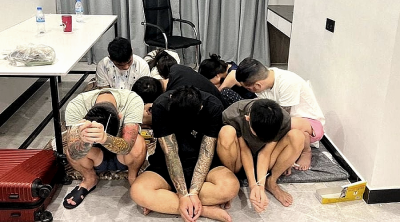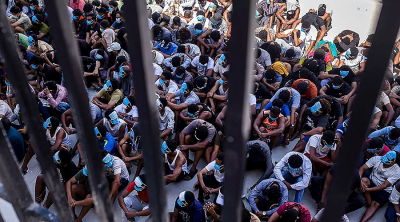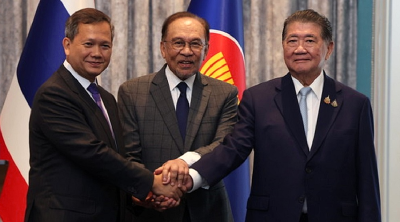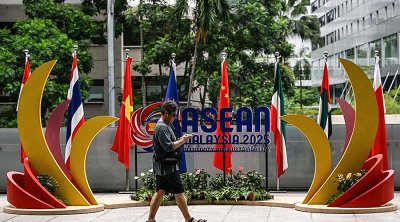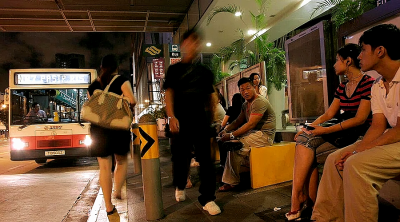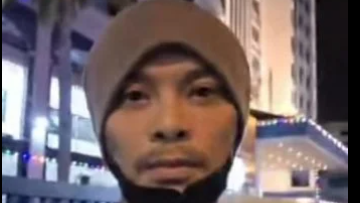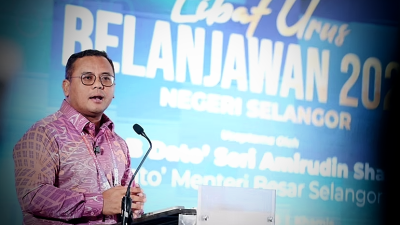Our government has done a lot to rescue the human trafficking victims, and has repeatedly urged the public through the media to stay away from suspicious job offers. It has even set up a team of “anti-scam ambassadors” to help convey this all-important message.
Finally, the war against human traffickers has been elevated to the cabinet level.
Yesterday’s cabinet meeting was seriously talking about the issue of young Malaysians being “sold” overseas by illegal syndicates.
A special committee to be headed by the foreign ministry has since been put up in order to resolve this problem.
Minister in the PM’s department Abdul Latiff Ahmad said the establishment of this special committee reflected the government’s commitment to the safety of Malaysians and that the government would do its utmost to safely bring back Malaysian victims stranded overseas.
The minister also urged Malaysians to contact the foreign ministry to ensure that an oversea job offered to them is legitimate. He also said rescue operations would be initiated as the government is highly concerned about the safety of Malaysian victims stranded overseas as well as the miseries their families here have to go through.
“Modern slavery” has become a heated topic among Malaysians ever since the issue was first raised and reported in great lengths on local media.
Initially many thought that those were just some isolated cases involving not more than a few hundred people. Nevertheless, as the time passes, the issue has snowballed into a major regional issue involving not just Malaysia but also other regional countries and territories such as China, Hong Kong and Taiwan, whose citizens are forced to work illegally as scammers in Myanmar, Cambodia, Vietnam and even Thailand.
So far the various countries involved are still unable to come up with the exact statistics on the number of victims from their respective countries. And with so many rumors circulating around, we have no way to tell whether they are real or false.
It has been said that as many as 100,000 Chinese nationals have been scammed while the Taiwanese authorities have estimated over a thousand Taiwanese victimized.
As for Malaysia, we can only estimate at least thousands of people have fallen victim to job scams, from what we have heard from the rescued victims themselves.
Those human trafficking syndicates active in countries like Myanmar, Cambodia, Vietnam and Laos belong to criminal organizations operating in a systematic mode. They are well connected and keep moving their victims around to avert police actions.
It has been said that the infamous KK Park in Myanmar’s Myawaddy region is only one of as many as 14 illegal parks operating in the region.
The syndicates use a number of varied tactics to entice their victims, such as offering free tours, well-paid jobs, etc. it has also been reported that KK Park has started to move its headquarters from Myawaddy to Yangon.
Due to the sheer number of such illegal “scamming parks,” it has become increasingly difficult for the authorities to rescue the victims.
In mid-August, the Chinese embassy in Myanmar appealed to the Myanmar foreign ministry to rescue the victims but to no avail, because many of these illegal parks are operating in areas controlled by the local warlords, making it hard for government military to intervene.
Around the same time, three elected representatives from Taiwan traveled to Cambodia personally to help bring the Taiwanese victims back to safety. Through the assistance of local Taiwanese businesses, only a single victim was eventually set free. This shows how difficult it is to bring out the stranded victims.
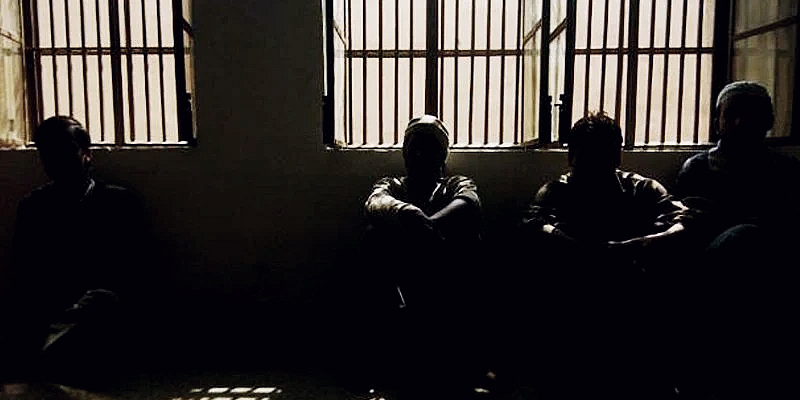
Sihanoukville in Cambodia is currently a major operation hub for scamming syndicates as well as gangs from China, Hong Kong, Taiwan and Macau.
To salvage the country’s deteriorating international image, the Cambodian authorities have raided several “high tech parks” in Sihanoukville over the past few days and detained almost 500 foreigners involved in online scamming.
Nevertheless, the more powerful and well-connected syndicates had already been tipped long before the operation started and had cunningly moved the victims elsewhere.
We need to realize that once we are duped to fly to places like Myanmar and Cambodia, there isn’t much chance for us to regain our freedom.
Even if the governments of these countries mobilize large numbers of police and military personnel, there is no guarantee the victims will be saved.
As mentioned earlier, many of the syndicates in Myanmar are operating in areas occupied by the warlords that even the government army does not dare to set their feet on.
Given the rampant corruption in Cambodia, even if the military has a rescue operation in mind, the information will be leaked out very quickly to the syndicates, giving them the opportunity to move their operations elsewhere.
We have already seen that even if the army has been mobilized in Cambodia, the syndicates’ bases remain very much unscathed, and this speaks volumes of the difficulty to rescue the stranded victims.
As such, don’t bet your life for those extra few bucks they have promised you. If you are lucky enough, you may still come back alive, but what if you are not?
The Malaysian government has done a lot to rescue the human trafficking victims, and has repeatedly urged the public through the media to stay away from suspicious job offers. It has even set up a team of “anti-scam ambassadors” to help convey this all-important message.
And now, even the cabinet is talking about the problem and has set up a special committee headed by the foreign ministry to tackle the issue.
The mission of this committee is believably very tough given the enormous number of victims scattered all across the region.
Unless the victims can dodge the surveillance and take the initiative to contact the local police, it is extremely hard for the police to trace them.
Bukit Aman Criminal Investigation Department’s Mohamad Zainal Abdullah has urged the victims to boldly seek assistance from the local enforcement authorities.
They’ve got to be courageous to face the consequences even if they have violated the local immigration law by entering the country illegally, as this is the only way for them to come back safely to Malaysia.
We encourage families of the victims to grasp every available opportunity to stay in touch with the victims and to try to identify their exact locations in order to facilitate any future rescue initiative.
Even if they have entered the country illegally, they will at most be put behind bars for a short period of time before they are deported. At least they still get to come back to Malaysia one day and start a new life here instead of collaborating with the illegal syndicates to cheat more of their fellow countrymen.
ADVERTISEMENT
ADVERTISEMENT






